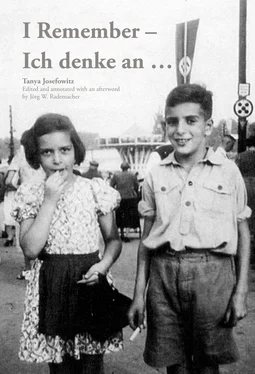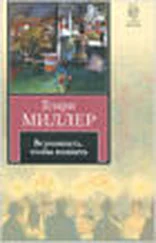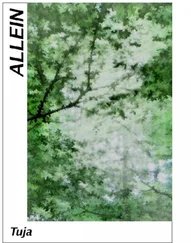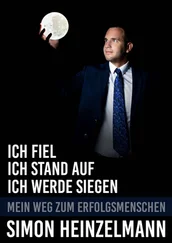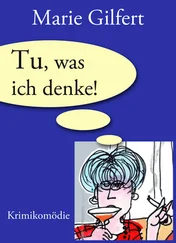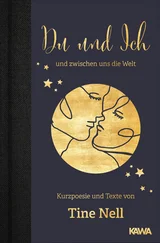We left Worms, our home, our friends, our past for a completely unknown future, and our first stop was in Munich to say good-bye to my grandmother. Vladimir and I stayed with our beloved granny Emma. It was the very last time we saw her. She was later deported and died in Theresienstadt.
We still needed visas for any country that would harbor us on our way to the United States. There were many disappointments. My grandfather, a prominent Munich citizen and former War Veteran, was very well to do with many connections in the outside world.
His efforts to get us visas were of no avail. Nor could my mother’s sister in Denmark or her brother in Spain be of any help. She was married to a Protestant and relative of a famous Danish writer and her brother’s wife was a Spanish Catholic. But all this did not open any doors. 4
After all our possibilities seemed exhausted, my mother suddenly remembered some Jewish friends who with their family, a few years ago, had emigrated to France. She contacted them in Metz where they were living and luckily! – they were able to get us a two months’ visa to stay in France. This, however, was finalized on the very last and dreaded tenth day of our residence permit in Germany. If by then we had not left the country, we were to be deported to some concentration camp. We therefore had to leave immediately.
The container 5had been shipped to the USA, and all we had with us were three small suitcases and the equivalent of $200,00, the only money we were permitted to take out. With warm, hopeful send-offs and tears, yet much relieved, we finally took off after emotionally loaded good-byes at the station.
It was a cold, gray day in the middle of March 1938. Mother was 32 [ in fact, 34 ] years old and though her heart was trembling, she showed great courage and put on a cheerful air for the sake of her two children. We left on the train to Saarbrücken, a border town 6, where we were to catch our connecting train at 7.00 p.m. to Metz in France.
Once on the moving train,it was like turning a page of my life. After the painful separation from all that was secure and dear to me I felt almost elated, as if we were on our way to a new phase of freedom and maybe to a life without fear. The train was chugging along. There was a smell of burnt coals as smoke slid past our windows. We were alone in our compartment.
Suddenly I looked up and saw my mother’s face turned pale. She produced a document out of her handbag and with a trembling voice she read out to us the frightening words of our “ Ausweis ” 7with its official stamp and date: our German permit had expired the previous day. We should have been out of Germany today. Mother was panic stricken. She felt that this document could cause us problems at the border and that she had to get rid of it. Against Vladi’s advice, while I was crying bitterly, frightened and confused, she tore it up into bits and pieces which she threw out of the window of the moving train, like flurries of snow flying in the wind. She closed the window and we huddled together, waiting silently for our arrival in Saarbrücken scheduled for 6.00 p.m.
When we reached our destination, few people got off the train and the platform was almost empty. We stood there with our few belongings, trying to decide what next, until my big brother Vladi, bright and attentive, spotted the “ Zollamt ” 8, the Customs Office. We slowly crossed the silent station, and after a moment’s hesitation we went to it. We were met by a Gestapo man with ice blue eyes and a face cut in steel. He was dressed in Gestapo uniform, all in black: the tightfitting belt around his slim waist, the shiny boots and the typical casket with its Nazi insignia on his hat and on his jacket. 8a
He motioned us into his office and ordered Mother to show her papers. With trembling hands she handed them over. He skimmed through them and then insisted that an important document was missing with an official stamp and a permission to leave Germany and to enter France. Without it he categorically refused to let us catch our 7 o’clock train to France. Our hearts sank. … Mother tried to explain how and why she tore up the missing document and that she had been afraid it would detain us, and cause problems. But he said: “No, madam, it is now that you have a problem. There is no way I can let you leave Germany. You must wait for tomorrow. …” Until then we would not be allowed to leave the station. We had to spend the night in the “ Bahnhof Buffet ” 9. He took us there and left us – in this bleak, empty, cold, so-called “restaurant”.
I remember the one light bulb hanging down on a wire over our heads, the table bare, made of cheap wood full of greasy stains. The benches we sat on had no backing, and were too narrow to recline or to rest on. Vladimir had to go to the toilet, which was just outside the “ Buffet ”. He returned quickly rather upset. The toilet “lady” asked him for money for the use of the toilet. He had none. So she refused him. Mother had already changed all our money into French francs. Instead, she gave Vladimir an apple for the lady who took it and let him use the toilet.
Reunited in the “ Buffet ”, we nibbled on our picnic. Vladimir tried to cheer us up and played some German melodies for us on his accordion. It did make us forget for a moment where we were and we even laughed a bit. 10Soon we were alone in the “ Buffet ” as it closed down for the night. We tried to rest, or even to catch a wink of sleep. It was cold and bleak outside, but it was very cold inside as well, with bad light and horrid gray walls. Alone and frightened, we rested our heads on the table and cuddled together. But we could not sleep. I stopped crying but from time to time a tremor went through me.
We waited for the night to pass, not knowing what horror would befall us in the morning. In the silence of the night, the station seemed totally deserted, no more trains arriving or leaving. Sometimes we heard a distant whistle, or voices. But suddenly there were footsteps and the door was opened. In came a man in the same uniform as the one worn by the officer with icy eyes. This man, however, had a kinder face. At first glance we were startled by him, but not terrified. He said in a gentle voice, “Woman, what are you doing here in the middle of the night with two little children?” Mother explained how and why we had been detained and forced to spend the night in this waiting room. The man looked at us, obviously distressed. Then he said: “No, you cannot spend the night in this place.” He told us to take all our belongings, and in the cold of the night, on the empty station, he urged us to follow him back to this office where we had previously been. He insisted that we sit down, and as I was crying, he reassured me not to be afraid. Then he made a series of phone calls, trying unsuccessfully to find a place for us to spend the night. Even the “Jewish Community House” had no room and offered to put us up in a hotel. For some reason he didn’t accept their offer, said he would take care of us himself, and whisked us off to a hotel, across from the station.
We arrived in an empty, dreary lobby with a prominent picture of Hitler above the concierge’s desk. Our Gestapo man paid for a single room for the night, and reminded Mother to be back in his office at the station at 7.00 a.m. on the dot. Once together in the little room, we were in heaven. Vladimir and I were tucked in the single bed – sardine fashion – and Hildi, my exhausted mother, sat up in an armchair facing us. On the dreary beige, flowered, papered wall there was another picture of Hitler. We were too shaken and scared to get a real sleep. But at least we dozed off a bit in the quiet, heated room and had a little rest, regardless of the occasional eerie click clack of roaming Nazi officers patrolling the streets.
Читать дальше
